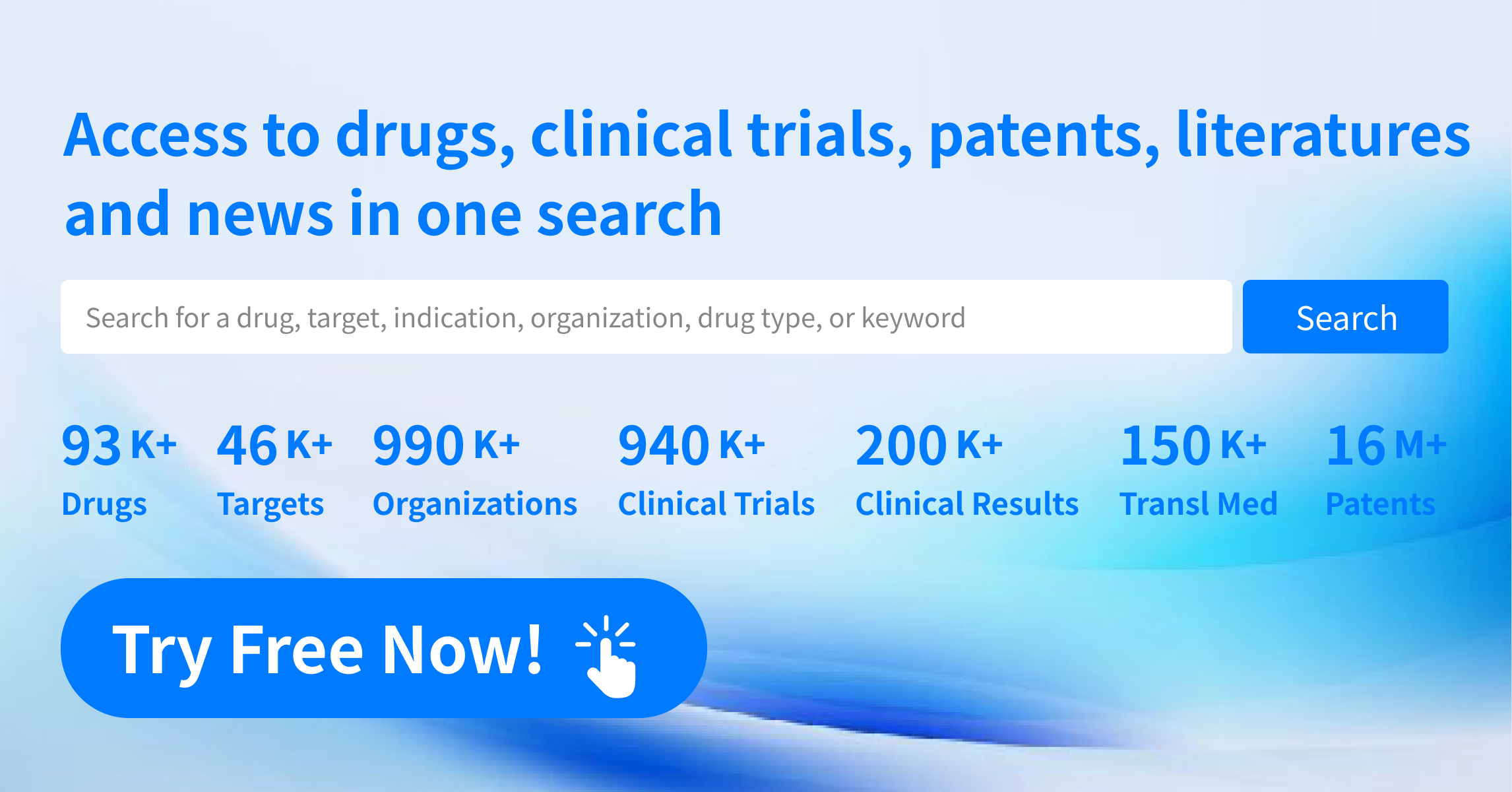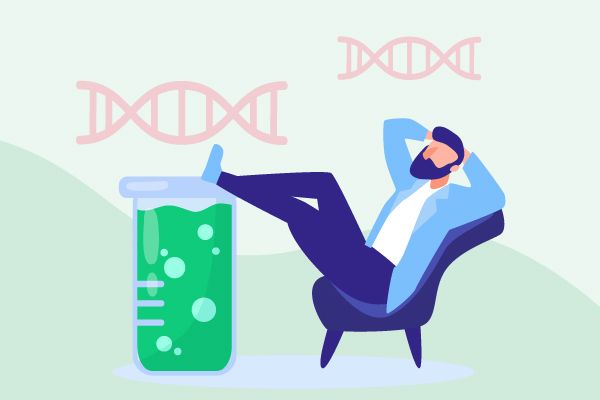"Overturning" the B7H3 Target: Can Its Potential be Transformed with ADC Drugs?
B7-H3 (also known as CD276) is a type I transmembrane glycoprotein and a member of the B7 family. It has no expression in monocytes, granulocytes, and normal human tissues but is expressed in some dendritic cells, T cells, natural killer (NK) cells, and B cells, making it a newly discovered immune checkpoint. This target not only facilitates immune escape of tumor cells by inhibiting the immune system but also promotes cancer progression through mechanisms of tumor metastasis, drug resistance, and angiogenesis in non-immune pathways.
Studies have found that B7-H3 is abundantly expressed in several tumor tissues such as non-small cell lung cancer, pancreatic cancer, primary liver cancer, colorectal cancer, breast cancer, prostate cancer, pharyngeal cancer, melanoma, etc. Its abundant expression in tumor tissues often accompanies poor prognosis in patients, shorter overall survival period, and progression-free survival.
Current B7H3 Drug Development Scenario
According to an incomplete count, there are over a hundred drugs targeting B7-H3 under research. They include monoclonal antibodies, bispecific antibodies, antibody-drug conjugates (ADC), antibody-linked nuclides, cellular therapies, fusion proteins, etc.; none of which have been approved yet.
However, the development of drugs targeting B7-H3 has not been smooth sailing. Several clinical trials have been halted, and patient deaths have posed obstacles. For instance, in January 2019, the FDA suspended a Phase I trial for the CD3/B7H3 bispecific antibody MGD009 to treat B7H3-positive solid tumors due to the occurrence of liver-related adverse events. In 2022, enoblituzumab(MGA271), a B7H3 monoclonal antibody, developed by I-MAB/MacroGenics was halted as patients died during the Phase II trial for advanced head and neck cancer. Additionally, the study of Macrogenics' B7H3 targeted ADC drug, vobramitamab duocarmazine (MGC-018) was also halted due to patient death and severe adverse events in the Phase II clinical trial for prostate cancer.
B7H3 Trade Status
Despite these difficulties, deals for B7-H3 drugs have not decreased. According to an incomplete estimate, there have been 18 trades regarding the B7H3 target so far.
Taking the past two years as an example:
- In July 2024, Biocytogen and IDEAYA Biosciences reached an option and licensing agreement for their BsADC project targeting B7H3/PTK7. The potential total transaction reaches 406.5 million USD, which includes 100 million USD in clinical development and regulatory milestone payments.
- In July 2024, Escugen and Innolake Biopharm agreed on an exclusive global license for using Escugen’s new ADC technology platform EZWi-Fit® to develop ADC products targeting specific targets. Meanwhile, Innovent's ground-breaking bispecific ADC product ILB-3103 that was designed using the EZWi-Fit® technology has successfully completed pharmacological verification of PCC (preclinical candidate compounds). This product targets DLL-3 and B7H3, two promising tumor-related targets.
- In December 2023, Hansoh Pharma and GSK have reached an exclusive licensing agreement on HS-20093, a B7H3 ADC drug independently developed by Hansoh Pharma. Hansoh Pharmaceuticals will grant GSK the exclusive rights to develop, manufacture, and commercialize HS-20093 globally (excluding Mainland China, Hong Kong, Macau, and Taiwan). According to the agreement, Hansoh will receive an upfront payment of $185 million and is eligible to receive up to $1.525 billion in success milestone payments. Upon commercialization of the product, GSK will also pay tiered royalty fees based on net sales outside of Mainland China, Hong Kong, Macau, and Taiwan.
- In October 2023, Daiichi Sankyo and Merck reached a global development and commercialization agreement for Daiichi Sankyo's three ADC candidate drugs: patritumab deruxtecan (HER3-DXd), ifinatamab deruxtecan (I-DXd), and raludotatug deruxtecan (R-DXd). They will develop and potentially commercialize these candidate ADC therapies globally. Daiichi Sankyo will retain exclusive rights in Japan and will be fully responsible for the production and supply. The potential transaction value for the three projects is up to $22 billion, among which ifinatamab deruxtecan is a B7H3-targeting ADC drug.
- In April 2023, BioNTech and DualityBio reached an exclusive licensing and collaboration agreement on two ADC pipelines, DB-1303 and DB-1311. Under the agreement, DualityBio will receive an upfront payment of $170 million and is expected to earn over $1.5 billion in milestone payments for development, registration, and commercialization, as well as a percentage of future potential sales in the single to double-digits as royalty fees. DB-1311 is a B7-H3-targeting antibody-conjugated drug.
Which advantages do these targeted B7H3 ADC drugs have that are worth large pharmaceutical companies' investments? We will provide a brief analysis for some representative drugs.
Latest Advances in B7H3 ADCs
According to incomplete statistics, there are approximately 33 B7H3 ADC drugs currently in research, and around 14 drugs are in clinical research stages.
1.Ifinatamab Deruxtecan
Ifinatamab Deruxtecan (I-DXd,DS-7300a), an ADC targeting B7-H3, is exclusively designed with Daiichi Sankyo DXd ADC technology. It consists of a humanized anti-B7-H3 IgG1 monoclonal antibody coupled with a cleavable tetrapeptide linker and Topoisomerase I inhibitor payload (a derivative of Exatecan, DXd). It is currently in phase III of clinical trials. According to data presented at the IASLC 2023 World Lung Cancer Conference, sub-group analyses of phase 1/2 trials of ifinatamab deruxtecan for treating SCLC revealed an objective response rate of 52.4%, median progression-free survival of 5.6 months, and overall survival of 12.2 months.
In July 2024, it was shown on the Chinese Clinical Trial Registry that the company had registered DS-7300a for Phase III clinical trials. The aim is to compare the safety and efficacy of DS-7300a with treatments chosen by physicians in recurring small cell lung cancer (SCLC) trial participants.
2.HS-20093
Developed by Hansoh Pharma, HS-20093, a novel ADC targeting B7-H3, is composed of a humanized anti-B7-H3 monoclonal antibody covalently linked to a Topoisomerase I inhibitor (TOPOi) payload. Currently, several phase I and II clinical trials are underway in China to treat various cancers, including lung cancer, sarcoma, head and neck cancer, and other solid tumors.
At the 2024 ASCO, the therapeutic potential of HS-20093 in small-cell lung cancer and osteosarcoma was showcased.
Firstly, the company revealed research data from the phase II trial, ARTEMIS-002, for the treatment of relapsed/refractory osteosarcoma patients. From June to December 2023, a total of 34 relapsed/refractory osteosarcoma patients were enrolled and received HS-20093 doses of 8.0mg/kg (N=15) or 12.0mg/kg (N=19). At baseline, most patients had stage IV disease and lung metastases. Among them, 22 patients (64.7%) had received ≥3 types of previous treatments. 26 patients (76.5%) received 4 types of standard therapies including platinum complex, anthracyclines, ifosfamide, and methotrexate.
As of December 25, 2023, 10 patients treated with 12.0 mg/kg HS-20093 had an objective response rate (ORR) of 20.0%; two confirmed partial responses were noted in the 12.0mg/kg group, with the longest response lasting for 4.0 months. The disease control rate for patients in the 8 mg/kg HS-20093 treatment group was 81.8% (9/11) and 100% (10/10) for those in the 12.0 mg/kg HS-20093 treatment group. The median progression-free survival of all 21 patients was not yet mature.
In terms of safety, 33 patients experienced treatment-emergent adverse events (TEAEs); the most common grade 3/4 TEAEs were neutropenia, leukopenia, thrombocytopenia, lymphopenia, and anemia. No deaths caused by TEAEs were reported.
Secondly, the company revealed results on the efficacy and safety of extended dose for SCLC patients previously treated with platinum standard. Data was collected until November 30, 2023, with relapsed treatments completed. In post-baseline scans, 96.2% (50/52) of patients showed a reduction in target tumor lesions, and 44.2% (23/52) had deep remission, defined as a tumor shrinkage of ≥50%. The median overall survival was not yet reached. Regardless of B7-H3 expression, a response was noted in all patients. Pharmacokinetics (PK) showed that exposure increased roughly proportionate with the dosage, with a half-life of 3-7 days. The PK curves of total antibodies and ADC were similar and effective payload exposure was relatively low.
Safety was consistent with previous reports; the most common grade ≥3 treatment-related adverse events (≥10%) were neutropenia, leukopenia, lymphopenia, thrombocytopenia, and anemia.
3.Vobramitamab Duocarmazine
Vobramitamab duocarmazine (MGC-018) is an ADC drug independently developed by MacroGenics. It is composed of a humanized B7-H3 monoclonal antibody, a cleavable linker, and the toxic drug Duocarmycin (DUBA). It can disrupt DNA in dividing and non-dividing cells, thereby causing cell death. It is proposed for the treatment of B7-H3 positive solid tumors.
According to previously published data, in phase I/II dose-escalation and cohort expansion studies: in the dose-escalation part, among 9 prostate cancer patients, 5 exhibited a ≥50% decrease in prostate specific antigen (PSA) levels during treatment, and 2 patients had reduced target lesions (one reduced by 29%). The recommended phase II dose (RP2D) is 3mg/kg, IV, Q3W. In the cohort expansion part, among 16 evaluable patients, 4 (25%) had a reduction in target lesions by more than 30% (2 confirmed for PR, 2 unconfirmed for PR), and 21 out of 39 evaluable patients (53.8%) had a PSA reduction of over 50%. A total of 83 patients (96.5%) experienced at least one treatment-emergent adverse event. The most common treatment-related adverse events (TRAEs) (with an incidence rate of at least 20%) were fatigue, neutropenia, hand-foot syndrome, pleural effusion, nausea, and weakness. Febrile neutropenia was not reported. The safety was manageable.
4.YL201
YL201 is a B7H3-targeted ADC drug, developed using the proprietary TMALIN® technology platform by MediLink Therapeutics. This B7-H3 target is highly expressed in esophageal cancer, and with the tumor microenvironment and traditional lysosome extracellular and intracellular dual-dissolution mechanism of MediLink 's TMALIN® technology, YL201 effectively kills esophageal cancer cells which is reflected in pre-clinical and clinical trial data. Currently, the YL201 project is carrying out dose-expansion studies in multiple cancers in China and the US, including further efficacy exploration in esophageal cancer indications.
5.MHB088C
MHB088C is an Antibody-Drug Conjugate (ADC) targeting B7H3, comprising of humanized anti-B7H3 monoclonal antibody coupled with a highly effective DNA topoisomerase I inhibitor that is 5 to 10 times stronger than DXd. Preclinical studies show that MHB088C possesses potent binding affinity, excellent internalization rate, and strong tumor-killing activity; it is 3 to 10 times stronger than DS-7300a analog in CDX models. Toxicology studies revealed no particular toxicity or interstitial lung disease (ILD) incidence with MHB088C, compared to other B7H3 ADCs.
According to the phase 1/2 study disclosed at 2024 ASCO, the trial recruited patients with recurrent/metastatic solid tumors, divided into two stages: Dose Escalation (D-esc) and Dose Expansion (D-exp). During the D-esc stage, MHB088C was administered intravenously at doses of 0.8, 1.6, 3.0 mg/kg Q2W; 3.0, 4.0 mg/kg Q3W. Results showed that as of December 31, 2023, among 12 evaluable patients, 5 displayed Partial Responses (PRs), with an Objective Response Rate (ORR) of 41.7%, and a Disease Control Rate (DCR) of 91.7%. Among 3 SCLC patients, all reached PRs, hence an ORR of 100.0%, with one achieving Complete Response (CR) and another showing nearly 80% tumor volume reduction. The efficacy in 2 SCLC patients was achieved in the 1.6 mg/kg Q2W group. All SCLC patients showed response at the first tumor evaluation.
The most common Treatment-Related Adverse Events (TRAEs) observed in ≥25% of patients were decreased neutrophil count, decreased lymphocyte count, and decreased white blood cell (WBC) count. The most common Grade ≥3 TRAEs (in ≥5% of patients) were decreased neutrophil count (33.3%), decreased lymphocyte count (30.0%), decreased WBC count (26.7%), decreased platelet count (23.3%), and anemia (15.0%). No reports of ILD were made.
6.DB-1311
DB-1311, the third-generation ADC product based on Duality Biologics's unique DITAC technology platform, exhibited powerful antitumor activity in various tumor models and demonstrated good safety and promising pharmacokinetic features in preclinical safety evaluations. Currently, the company is conducting a Phase I/IIa multi-center, open-label, first-in-human study evaluating DB-1311's safety, tolerability, pharmacokinetics, and preliminary anticancer activity in patients with advanced/metastatic solid tumors. In June 2024, the FDA granted BNT324/DB-1311 Fast Track designation for the treatment of patients with metastatic/unresectable castration-resistant prostate cancer (CRPC) showing disease progression during or after standard systemic therapy.
7.7MW3711
7MW3711, developed by Mabwell based on the novel antibody-drug conjugate technology platform IDDC™ (Interchain-Disulfide Drug Conjugate), consists of an innovative antibody molecule, a novel linker, and a novel Payload (Topoisomerase I inhibitor), and possesses full intellectual property rights. After injection into the human body, 7MW3711 can bind to tumor cell surface antigens, enter tumor cells, and release small molecules targetedly through specific enzymatic actions, thereby achieving precise tumor destruction.
8.IBI3001
IBI3001 is a potentially world-first dual-specific ADC targeting B7-H3 and EGFR, using the clinic-validated SYNtecanE® site-specific conjugation platform, and possesses multiple antitumor mechanisms: (1) enhanced EGFR signal blocking; (2) EGFR and B7-H3-mediated drug endocytosis and cytotoxicity; (3) powerful ADC bystander effects. The optimized B7-H3 arm not only strengthens the effect of EGFR signal blocking, but also reduces the toxicity of the EGFR target. In multiple in vitro and in vivo tumor models, IBI3001 has demonstrated potent tumor-killing effects and high tolerability, with a treatment window up to 40-fold.
9.ILB-3101
ILB-3101 is an antibody-drug conjugate targeting B7H3, developed based on Innolake's proprietary antibody and ADC platforms, and owns full, independent intellectual property rights. The antibody of B7H3, screened and optimized by the drug, has significant advantages over the B7H3 antibody used by leading international benchmark ADC products in key indicators such as internalization and in vitro and in vivo pharmacodynamics tests. For linker-effective payload, Innolake has selected a uniquely toxic payload substance, which offers higher efficacy and better safety than vinblastine type toxins (such as Dxd). Its linker is specifically designed, highly stable in plasma and possesses independent intellectual property rights.
In preclinical CDX studies, ILB-3101 has demonstrated superior antitumor effects compared to two leading international B7H3 ADC products. In pre-toxicological studies in crab-eating macaques, ILB-3101 also exhibited a wider therapeutic window.
How to obtain the latest research advancements in the field of biopharmaceuticals?
In the Synapse database, you can keep abreast of the latest research and development advances in drugs, targets, indications, organizations, etc., anywhere and anytime, on a daily or weekly basis. Click on the image below to embark on a brand new journey of drug discovery!




